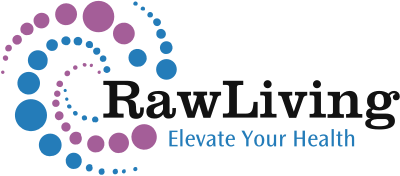Nori (Porphyra umbilicalis) is a small, mineral rich algae with many folds. In Japan it is cultivated, ground and packaged in pressed sheets. In Galicia, award winning sea vegetable producers Algamar harvest it wild at low tide. It has a strong flavour and can be eaten raw or lightly toasted and ground into flakes to be sprinkled onto the dish. It is high in proteins, vitamin A and vitamin B12.
Galicia (northwestern Spain) has 35% of the total Spanish coastline. It is a region with an abundance and wide diversity of marine species and has a deeply-rooted seafaring tradition. Its location, between the 42nd and 44th parallels, is, strangely enough, on the same latitude as the coasts of Japan.
Galicia owes the exceptional wealth of its seas to:
- its geographical situation, in the shape of a corner that juts into the sea
- the great ocean currents that converge here
- the jagged, capricious nature of its coastline
Its annual capacity for producing life is similar to that of the equatorial jungles, making it one of the richest marine environments in the world.
As far as sea vegetables are concerned, this area has the best resources in southern Europe, with luxuriant underwater gardens and many different shapes and colours.
Algamar is the leading Spanish firm specialising in dried algae (sea vegetables) for human consumption.
The company was founded in 1996 by the Fernández Sáa brothers, Clemente and Fermín, with the aim of promoting and spreading the word about the marvellous nutritional properties of Galicia’s native marine algae.
Its headquarters are in the Bay of Vigo, 18 km from the city of Vigo and 30 km north of the Portuguese border. Most of the company’s algae are harvested on the southern coast of Galicia, in the area classified by the European Union as part of the Natura 2000 network, very close to the Atlantic Islands Natural Reserve.
Algamar is a pioneer in the harvesting, processing and direct productionof sea vegetables and has the legal recognition of the Autonomous Regional Government and its Department of Fishing, Shellfishing and Aquiculture.
We use edible algae studied by specialised and internationally accepted official bodies.
As harvesters of wild edible algae, the company has a “Waters Exploitation Plan”, approved annually by the public Fishing Authority and published in the Official Bulletin of Galicia (DOGA). This plan guarantees that the resources taken from the sea are renewable and maintain the balance of the ecosystem.
The algae are collected by hand on the rocks and usually in the water, selecting and cutting the adult plants at their optimum point of development, just before they wither.
Following their selection and harvesting from the sea, the fresh algae are checked, subjected to a second selection process and then desiccated in drying chambers, at a low temperature, for human consumption as a dehydrated vegetable. In this way the air and the algae’s own sea salt provide long-lasting, natural preservation.
Low temperature drying preserves the maximum nutritional value
The company’s modern, stainless steel facilities, which it designed itself, can dry up to 4 tons of freshly-harvested algae a day. This makes some 400 kilos of dehydrated sea vegetables, ready to be packaged in sheets or to be ground for use as an ingredient in one of the products made with algae.
100 g = 20 portions.
Average values per 100 g:
Proteins: 29% Fats: 0,3% Carbohydrates: 43,1% Fibre: 34,7% Potassium: 2030 mg Calcium: 330 mg Magnesium: 370 mg Phosphorous: 235 mg Iron: 23 mg Iodine: 17,3 mg Vitamin A.: 36 mg Vitamin B12 : 2,9 m

